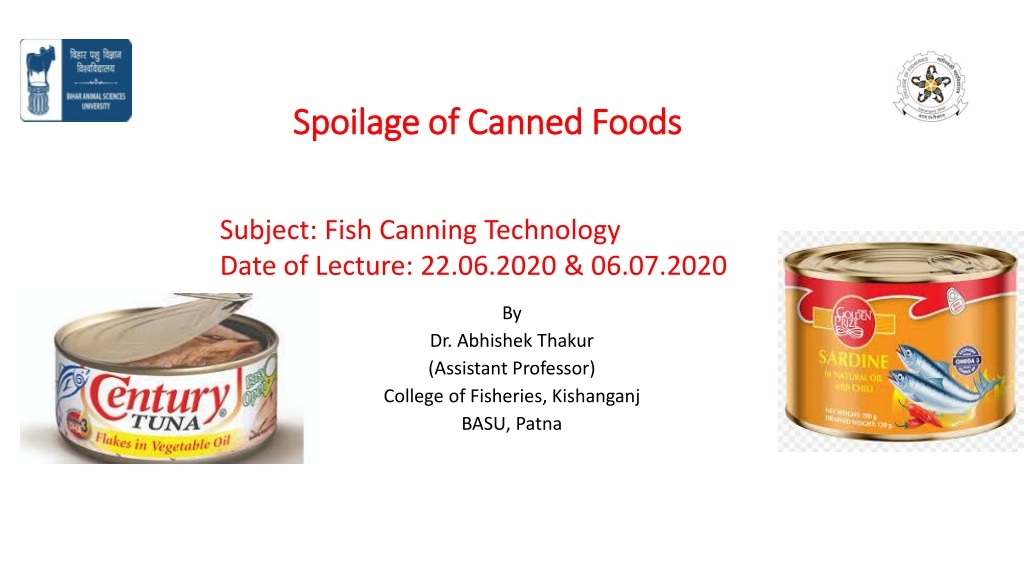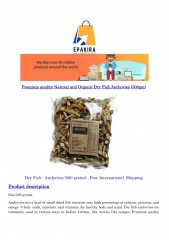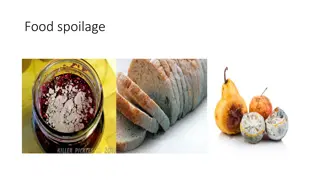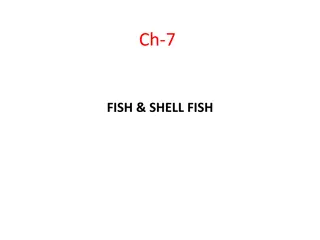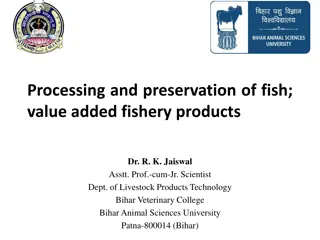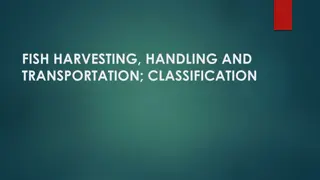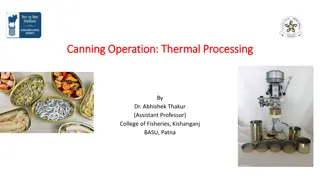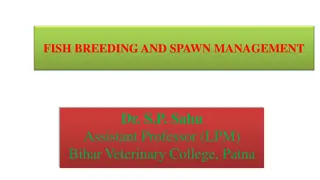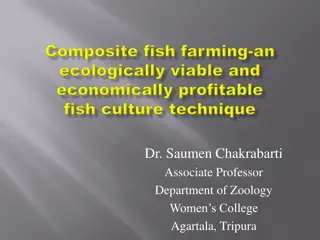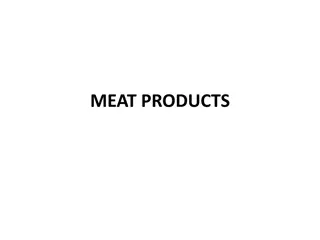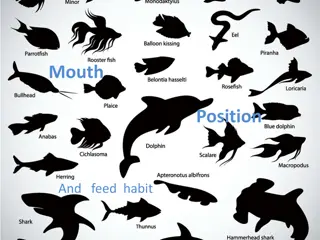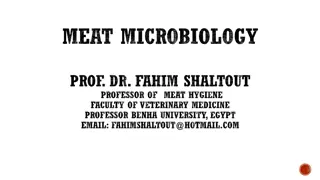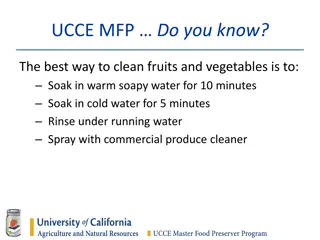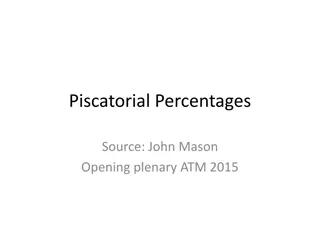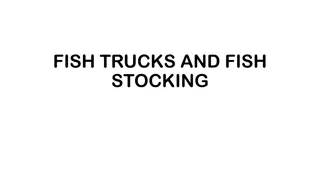Understanding Spoilage of Canned Foods in Fish Canning Technology
Food spoilage in canned foods, especially in fish products, can be caused by microbial, chemical, and physical factors. Issues like dents or rusting on the can surface can also lead to spoilage. Microbial spoilage during canning process can result in various defects like swell, acidification, and gas production. Proper cooling and sealing processes are crucial to prevent spoilage in canned fish products.
Download Presentation

Please find below an Image/Link to download the presentation.
The content on the website is provided AS IS for your information and personal use only. It may not be sold, licensed, or shared on other websites without obtaining consent from the author. Download presentation by click this link. If you encounter any issues during the download, it is possible that the publisher has removed the file from their server.
E N D
Presentation Transcript
Spoilage of Canned Foods Spoilage of Canned Foods Subject: Fish Canning Technology Date of Lecture: 22.06.2020 & 06.07.2020 By Dr. Abhishek Thakur (Assistant Professor) College of Fisheries, Kishanganj BASU, Patna
Food Spoilage Food Spoilage Food spoilage can be defined as any decay or undesirable decomposition of constituents by excessive growth of micro organism or by other physical & chemical causes. Foods are unfit for human consumption.
Spoilage of Canned Foods Spoilage of Canned Foods Spoilage in Canned foods is quite unique. Even a defect like dent or rusting on the surface may be accounted for as spoilage. All swelled can pass through the stages _ Flipper, Springer, Soft Swell & Hard Swell. Main Cause of spoilage in canned food can be classified as: 1. Microbial Spoilage 2. Chemical Spoilage 3. Physical Spoilage
Microbial Spoilage of Canned Foods Microbial Spoilage of Canned Foods 1. Under Processing: A canned food spoilage due to the survival growth of bacteria is generally considered under processed. The spoilage is indicated by Swell due to the production of acid & gas by mesophilic thermophiles of Clostridium Spp. They decompose protein & produce H2S, ammonia, indole, skatole etc. Another one is flat sour spoilage where contents of the can may be acidified & liquefied without any gas production by Bacillus stearothermophilus.
Microbial Spoilage of Canned Foods Microbial Spoilage of Canned Foods 2. Inadequate Cooling: Results in flat sour due to Bacillus Stearothermophilus which multiply rapidly in 48 - 70 C. Therefore cans are cooled rapidly to about 35 c after processing.
Microbial Spoilage of Canned Foods Microbial Spoilage of Canned Foods 3.Leakage through Seams: Which occurs during cooling after thermal processing. The main source of organisms is the cooling water. Results in swell, flat sour spoilage, gas production & acidification.
Microbial Spoilage of Canned Foods Microbial Spoilage of Canned Foods 4. Pre-process Spoilage: Results in swelling or flipping due to growth of bacteria because of any delay between processing steps.
Chemical Spoilage of Canned Foods Chemical Spoilage of Canned Foods Can which swell as a result of hydrogen produced due to the internal corrosion of the cans is known as hydrogen swell. Bulging may be range from flipper to hard swell. Normally hydrogen swells do not occur until nearly all the available tin has been consumed.
Flipper When a can is hit on the table, the can end flips out and becomes convex. Where the convex end is pressed it becomes flat again. A flipper is a can of normal appearance, but on striking against a solid object, one end flips out.
Springer If the inside pressure is more than in the case of flipper, one end of the can remains permanently convex and if this end is pressed down, the other end flips out. A can in which one end is bulged but can be forced back to the normal position whereupon opposite end bulges is called a springer
Soft swell Permanently convex can ends but when pressed by finger it get depressed but when the pressure is removed it regains original bulge. A soft swell is one in which the bulged end can be moved by thumb pressure, but can not be moved back to the normal position.
Hard swell Permanently convex ends and do not get depressed due to pressure by fingers. Soft and hard swell are due to high pressure gases, more hydrogen production or advance bacterial reaction
Physical Spoilage of Canned Foods Physical Spoilage of Canned Foods 1. Faulty retort operation: If the steam pressure is reduced too rapidly at the end of thermal processing, high pressure will be set up inside the container which may cause severe strain & distortion of the can ends results in swell & peaking due to abnormal strain.
Physical Spoilage of Canned Foods Physical Spoilage of Canned Foods 2. Under Exhausting: Similar distorations due to abnormal strain. 3. Over filling: Also results in similar condition. 4. Panelling: Due to high vacuum inside where the can body is forced inward by the atmospheric pressure.
Physical Spoilage of Canned Foods Physical Spoilage of Canned Foods 5. Miscellaneous: Eternally rusted cans, damaged cans, deformation on the seam, dents etc.
